Spring
Congratulations to Dr. Michelle Thompson (2016), promoted to Associate Professor in the Department of Earth, Atmospheric, and Planetary Sciences at Purdue University. Michelle is interested in understanding the alteration of planetary materials after their formation, specifically the evolution of airless body surfaces. She studies these phenomena using a combination of experimental techniques and returned sample analyses. Michelle uses advanced transmission electron microscopy methods, including experimental in situ techniques to answer her research questions. This work is directly applicable to samples already returned by the Apollo and Hayabusa missions, and is relevant for the upcoming OSIRIS-REx sample return.

Kudos to Dr. Molly Simon (2019), recipient of the Arizona State University College of Liberal Arts and Science Teaching Award!
Molly's current research focuses on utilizing citizen science to bring authentic data-rich experiences to undergraduate students both in person and online. She uses a mixed-methods approach to measure the efficacy of new active learning strategies developed to increase student learning on a variety of topics taught in college-level astronomy and planetary science courses.
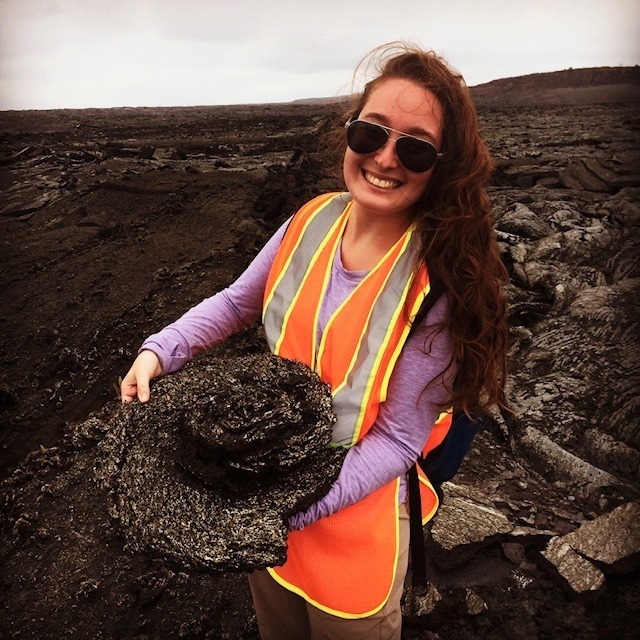
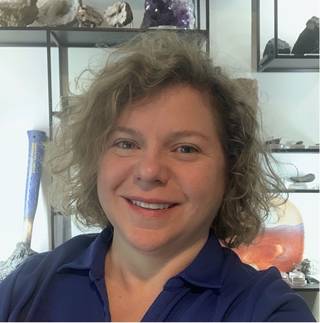 Dr. Barbara Cohen (2000), planetary scientist with NASA's Goddard Space Flight Center, was named project scientist for Artemis IV, which features a second crewed landing near the Moon’s South Pole, as well as the first Gateway assembly mission with the addition of a new element to the lunar space station. Cohen was the principal investigator of NASA’s Lunar Flashlight mission, an orbiter aiming to map ice in the permanently shadowed regions of the Moon's South Pole, and the Peregrine Ion-Trap Mass Spectrometer (PITMS), an instrument aboard Astrobotic's Peregrine Mission 1, one of the first lunar surface delivery contracts awarded through NASA’s Commercial Lunar Payload Services initiative.
Dr. Barbara Cohen (2000), planetary scientist with NASA's Goddard Space Flight Center, was named project scientist for Artemis IV, which features a second crewed landing near the Moon’s South Pole, as well as the first Gateway assembly mission with the addition of a new element to the lunar space station. Cohen was the principal investigator of NASA’s Lunar Flashlight mission, an orbiter aiming to map ice in the permanently shadowed regions of the Moon's South Pole, and the Peregrine Ion-Trap Mass Spectrometer (PITMS), an instrument aboard Astrobotic's Peregrine Mission 1, one of the first lunar surface delivery contracts awarded through NASA’s Commercial Lunar Payload Services initiative.
Congratulations to Dr. Ali Bramson (2018) on receipt of Purdue University's College of Science Faculty Award for Outstanding Contributions to Undergraduate Teaching by an Assistant Professor!
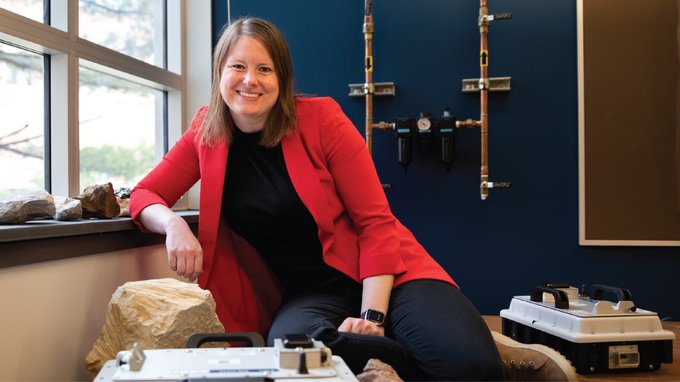
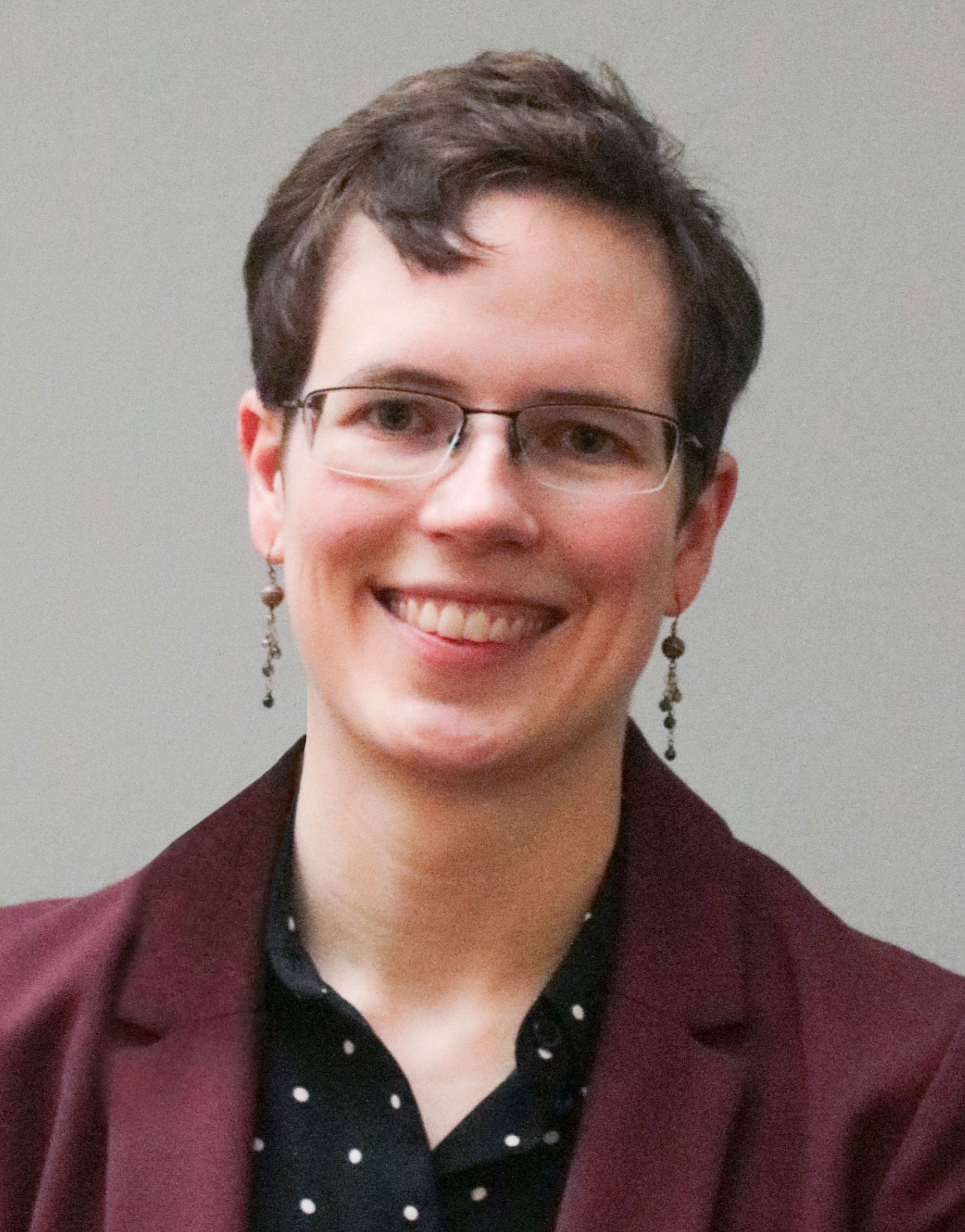
Dr. Maria Steinrueck (2021) is the recipient of a 51 Pegasi b Fellowship from the Heising-Simons Foundation. The 51 Pegasi b Fellowship provides postdoctoral scientists with the opportunity to conduct theoretical, observational, and experimental research in planetary astronomy. Dr. Steinrueck’s research seeks to enable more accurate observational interpretations and predictions across a range of exoplanet types through three-dimensional climate modeling. “We knew that photochemical hazes exist on exoplanets, but nobody had examined what they do in three dimensions. We had only one-dimensional models, which cannot describe the weather of a planet fully.”
As an undergraduate student majoring in physics with a focus on particle physics, Maria encountered a team studying exoplanet atmospheres and recalled her own excitement, years earlier, when exoplanet winds were first measured. It was enough to change her course as a scholar and professional. “I was drawn to climate models where you can actually simulate the winds and temperature distribution on an exoplanet and see what that looks like in three dimensions, through day and night differences in temperature and other conditions. 3D models are necessary to more fully understand what’s happening on planets we cannot see directly.”
Today, Maria examines how clouds and hazes impact a planet’s atmospheric circulation, temperatures, and transmission and emission spectra. Photochemical hazes, born of UV reactions with molecules such as methane, can significantly distort or mute the chemical signatures observed and used to characterize a planet. In a first for her field, Maria developed a three-dimensional climate model that predicts the location of photochemical hazes in the atmospheres of Hot Jupiters, the largest and most extensively described exoplanets to date.
During her fellowship, Maria will model 3D atmospheric circulation for a wide variety of exoplanets, determining how haze particles mix and move across different planetary conditions. Included in this exploration will be cooler, smaller planets closer in size to Neptune and Earth, which are increasingly observable through next-generation telescopes. “With the new space telescope (JWST) we will get more data and details about smaller exoplanets. From the first measurements published, we can already see there is uneven cloud and haze coverage, with a lot of 3D effects that must be factored in to interpret observations of these planets correctly.” Maria’s modeling will improve the accuracy of interpreting these observations, for a clearer picture of distant planets more like our own.
Prior to starting her 51 Pegasi b Fellowship at the University of Chicago, Maria will continue in her position as the Atmospheric Physics of Exoplanets Prize Postdoctoral Fellow at the Max Planck Institute for Astronomy in Heidelberg, Germany.
Lori Huseby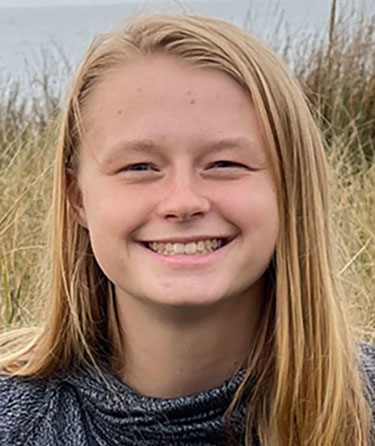
Advisor: Travis Barman
Lori works on modeling the Extreme Ultra-Violet (EUV) spectra of stars systems that could contain exoplanets in the habitable zone. She also determines radii of directly imaged exoplanets and has also been working on completing a large grid of EUV spectra that will eventually be implemented into a searchable database for the science community. She hopes that her work will help locate potential planetary targets for future studies.
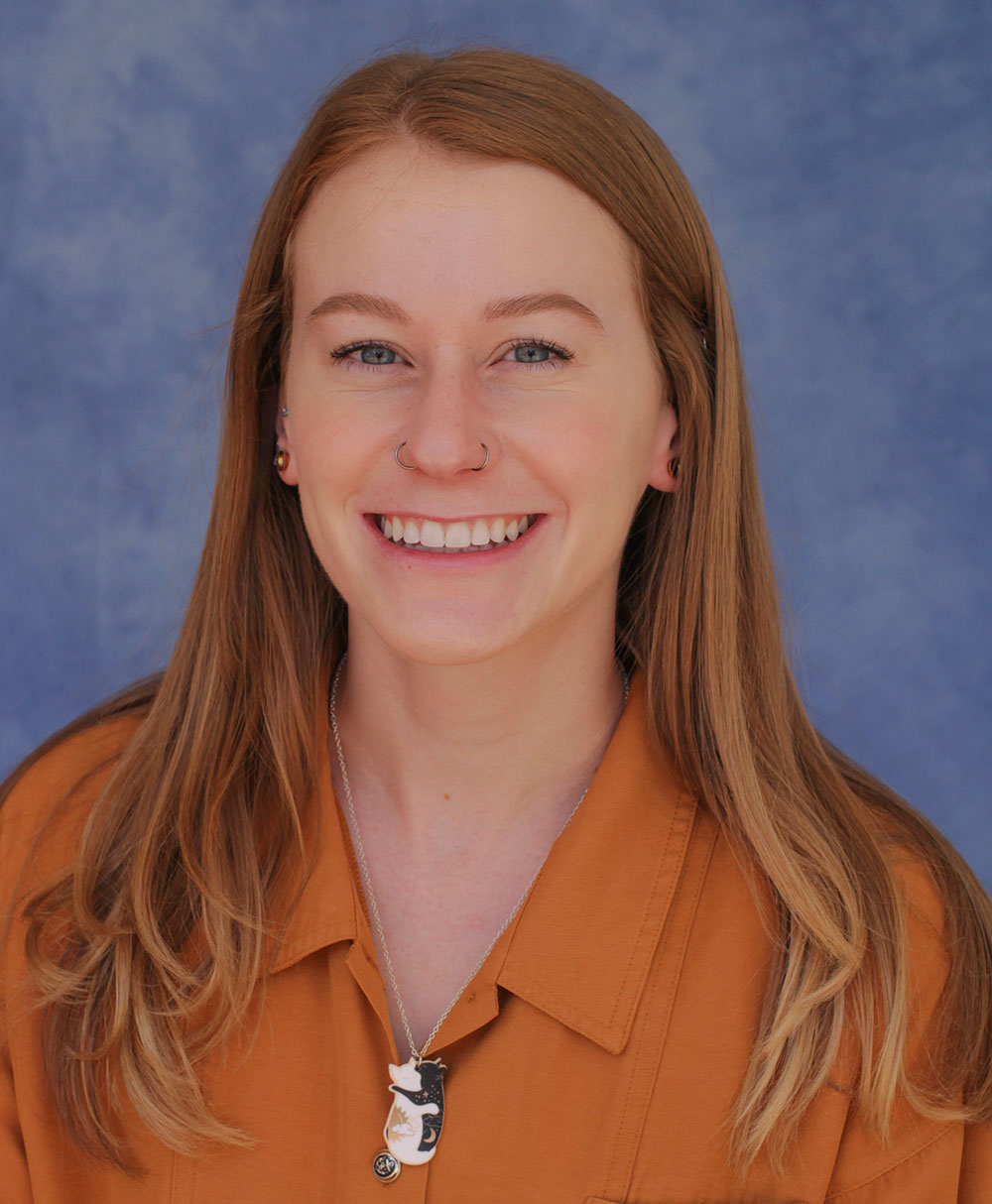
LPL Ph.D. candidate Zoë Wilbur is one of 110 doctoral students in the U. S. and Canada selected to receive a $20,000 Scholar Award from the P.E.O. Sisterhood. She was sponsored by Chapter FF of Tucson, Arizona.
As a student at LPL, Zoë analyzes volatiles in meteorites and also in Apollo surface samples as part of the NASA ANGSA project. She is the recipient of a NASA Future Investigators in Earth and Space Science and Technology Award.
The P.E.O. Scholar Awards were established in 1991 to provide substantial merit-based awards for women of the United States and Canada who are pursuing a doctoral-level degree at an accredited college or university. Scholar Awards recipients are a select group of women chosen for their high level of academic achievement and their potential for having a positive impact on society.
The P.E.O. Sisterhood, founded January 21, 1869, at Iowa Wesleyan College, Mount Pleasant, Iowa, is a philanthropic educational organization dedicated to supporting higher education for women. There are approximately 6,000 local chapters in the United States and Canada with nearly a quarter of a million active members.
Fuda Nguyen is the 2023 recipient of the Curson Travel Award.
The Curson Education Plus Fund in Planetary Sciences and LPL was established by Shirley Curson, a generous donor and friend of LPL, for the purpose of supporting travel expenses outside the state of Arizona during summer break. The award is open to students in the Department of Planetary Sciences and Lunar and Planetary Laboratory who propose to fund study, museum visits, special exhibits, seminars, instruction, competitions, research and other endeavors that are beyond those provided by the normal campus environment and are not part of the student’s regular curriculum during the recipient’s school year.
To donate to the Curson Travel fund, visit the University of Arizona Foundation.
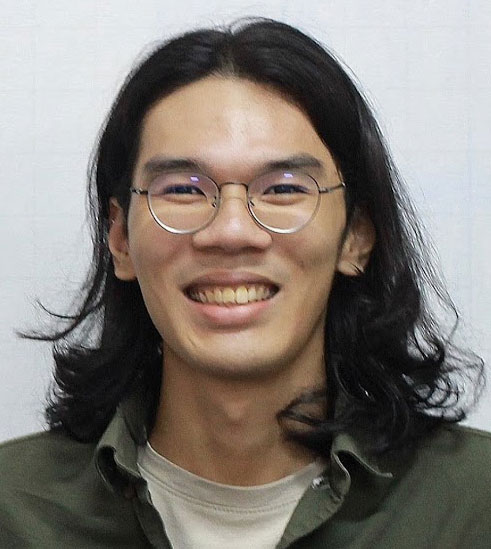
Fuda just completed his first year as an LPL graduate student, working with advisor Daniel Apai. He will use Curson funds to attend the 2023 Sagan Exoplanet Summer Workshop, Characterizing Exoplanet Atmospheres: The Next Twenty Years, which will be held at CalTech, July 24-28, 2023. He will also attend a half-day (July 29) workshop on EXCALIBUR, a new tool for comparative planetology.
Fuda's research focuses on the monitoring of directly imaged exoplanets and substellar objects such as L and T brown dwarfs in order to understand their atmospheric physics and their formation. He writes that the Sagan Workshop "is an excellent opportunity to learn more about theoretical understanding of exoplanet and solar system planet atmospheres, the current and future observations of exoplanet atmospheres through direct imaging and transmission spectroscopy, the 1D and 3D toolkits used to model these atmospheres, as well as exciting progress in the field and community of researchers." We will report on Fuda's summer travel and research in the fall.
The Graduate Teaching Assistant Excellence Award is an LPL initiative which is intended to promote, recognize, and reward exemplary performance among graduate teaching assistants assigned to PTYS undergraduate courses. The award consists of funding intended to be used toward travel and expenses to professional meeting chosen by the recipient. All graduate teaching assistants assigned to PTYS courses are eligible, whether or not their home department is PTYS.
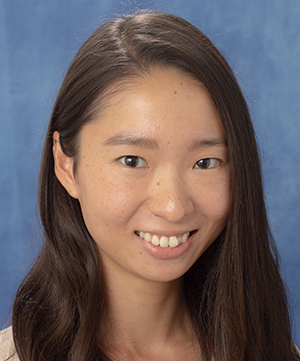 Kana Ishimaru
Kana Ishimaru
Fall 2022
PTYS/ASTR 170A1, Alien Earths
Instructor: Jessica Barnes
2023 LPL nominee for College of Science Graduate Excellence Award for Teaching and Mentoring
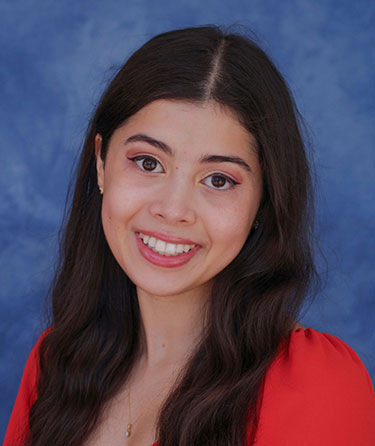
Jada Walters
Fall 2022
PTYS 212, Science and Politics of Climate Change
Instructor: Tommi Koskinen
Pagination
- Previous page
- Page 16
- Next page

